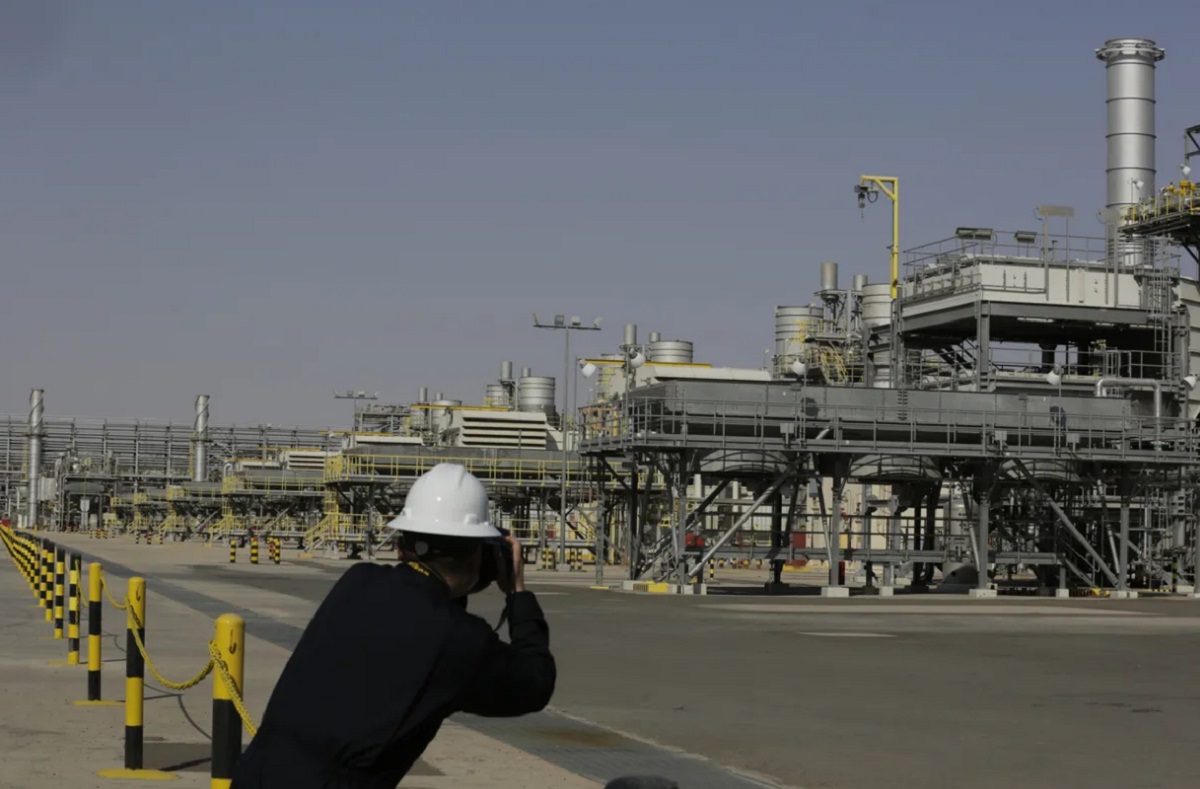The oil price surged to $86 a barrel after the world’s largest producers announced a surprise cut in production, a move that is likely to prompt fresh tensions with the US as western governments try to get a grip on inflation.
The OPEC+ group of countries, which includes major producers Saudi Arabia, Iraq and Russia, said they would slash production by around 1m barrels a day, accounting for about 3.7% of global demand.
That is on top of existing plans to continue cutting 2m barrels a day – originally agreed in November – until the end of 2023.
The decision caused an immediate spike in Brent crude futures contracts for May, with the international benchmark for oil prices rising more than 7% to $86 a barrel on Monday morning.
While OPEC+ representatives stated the move was intended to support market price stability, some analysts said members were angling for higher profits.
“Officially, the cartel wants price stability in oil markets,” Ipek Ozkardeskaya, a senior analyst at Swissquote Bank, stated, adding, “But in reality, they simply want higher prices.”
The cut comes after a drop in oil prices in the first three months of the year, which resulted in its worst first-quarter performance since travel bans came into force at the start of the Covid pandemic in 2020.
But western government are worried that the decision by OPEC+ to prop up prices could harm efforts to curb inflation that were originally exacerbated by geopolitical tensions following Russia’s war in Ukraine.
Michael Hewson, chief market analyst at CMC Markets UK, said, “The reality is that inflation is unlikely to be receding any time soon short of an economic collapse, and with OPEC+ unexpectedly announcing at the weekend that they would be cutting output by 1.1m barrels a day from next month, we could well see the economic boost offered by the recent fall in energy prices start to reverse if this morning’s surge in oil prices gains traction and starts to head towards $100 a barrel.”
The US came out strongly against the Opec+ output cut, which could result in a further spike in fuel prices and consumer costs more broadly.
“We don’t think cuts are advisable at this moment given market uncertainty – and we’ve made that clear,” a spokesperson for the US national security council stressed.
The new OPEC+ production cuts will begin in May.
The latest reductions could lift oil prices by $10 per barrel, the head of investment firm Pickering Energy Partners said on Sunday.
Goldman Sachs lifted its forecast for Brent to $95 a barrel by the end of the year and to $100 for 2024.
“Today’s surprise cut is consistent with the new OPEC+ doctrine to act preemptively because they can without significant losses in market share,” Goldman Sachs announced, adding, “While surprising, this cut reflects important economic and likely political considerations.”
